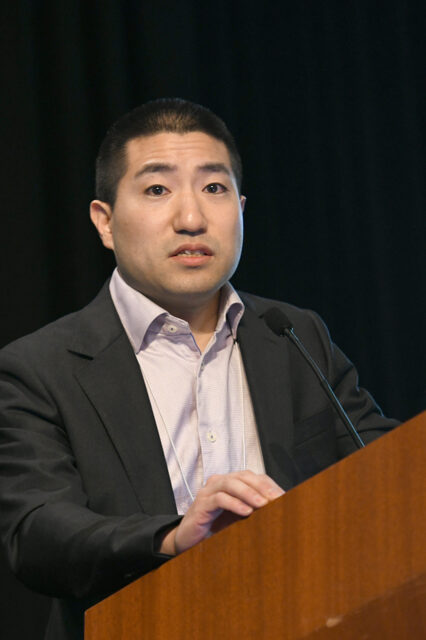2025 Kosaka Top Basic Science Abstract Winner Interview: Mitsukuni Yoshida, MD, PhD
NAD+ Augmentation and Senolytics as a Non-Opioid Analgesic for Treating Neuropathic Pain in Mice
 Mitsukuni Yoshida, MD, PhD
Mitsukuni Yoshida, MD, PhD
Clinical Fellow, Academic Scholar Advancement Program
Washington University School of Medicine in St. Louis
St. Louis, MO
Mitsukuni Yoshida, MD, PhD, first became fascinated during his graduate studies with how aging alters the body, specifically at a molecular and cellular level. That initial interest developed into studying the role of immune metabolism in chronic pain. Now, a clinical fellow in the Academic Scholar Advancement Program at Washington University School of Medicine in St. Louis, Dr. Yoshida has set out to better understand the role of metabolic dysregulation in the myeloid cell in the pathogenesis of pain and the molecular driver of pathological neuropathic pain that can be therapeutically targeted. He hopes his investigation into this area of study will identify biomarkers that can be utilized to risk-stratify patients undergoing surgery to prevent the development of chronic pain. The significance of Dr. Yoshida’s research efforts was recognized with the Kosaka Top Basic Science Abstract Award on Sunday, March 23 at the 2025 Annual Meeting, presented by IARS and SOCCA. In the following interview, he discusses the trajectory of this research and how presenting at the meeting and this award will help to advance his career and investigation.
1. For this research, I am…
Principal Investigator
2. What drew you to the anesthesiology specialty?
The unique nature of the specialty that works in the intersection of neuroscience, pharmacology, and physiology and hands-on skills that directly impact the condition of our patients.
3. What drew you to this area of research?
I have been interested in how aging alters our body since I was introduced to the field during my graduate studies. Aging is a failure to maintain a complex, multiorgan system that allows us to function daily. I have been exploring how aging alters the system at the molecular and cellular level and interconnects them to understand its impact at the systems level. As a part of the effort, I am studying the role of immune metabolism in my subspecialty interest, chronic pain.
4. What are the goals you most want to accomplish in your work with this research project?
I would like to understand the role of metabolic dysregulation in the myeloid cell in the pathogenesis of pain and the molecular driver of pathological neuropathic pain that can be therapeutically targeted. I also would like to identify biomarkers that can be utilized to risk-stratify patients undergoing surgery to prevent the development of chronic pain.
5. What is the potential impact of your research on the field of anesthesia and patient care?
- Identification of molecular target for treating neuropathic pain
- Biomarker for risk stratification and diagnosis of neuropathic pain
6. What are the benefits of presenting your research at the IARS Annual Meeting?
By presenting my current work, I received excellent constructive comments from the experts and colleagues in the field. As I am transitioning to a faculty position next year, it was a great opportunity for me to introduce the concept of my research program to our research community and institutional leaders.
7. How do you feel about receiving the Kosaka Best Abstract Award?
I feel humbled and very honored to receive this award that Dr. Kosaka established, especially as a Japanese citizen who aspires to be a physician-scientist in the US.
8. How will this award affect your research and professional trajectory?
With this award, I feel confident about the direction of my research project. I would like to expand on this project to establish a strong foundation for my research program over the coming years.
9. Is there anyone else you wish to acknowledge as part of this research team?
I would first like to thank my mentor, Dr. Rajendra Apte, for his unconditional support for my research. Second, I would like to thank my team members, Shinobu Yamaguchi and Kenta Kato, for their assistance. Lastly, I would like to thank my departmental Chair, Dr. Michael Avidan, and Vice Chair of Research, Dr. Robert Gereau, for their continuous support for training physician-scientists in our specialty.
10. Outside of your research, what might someone be surprised to learn about you?
I practice Japanese sword fencing called kendo and hold a 5th-degree black belt. Kendo training has given me many qualities that have helped me get where I am.
“I feel humbled and very honored to receive this award that Dr. Kosaka established, especially as a Japanese citizen who aspires to be a physician-scientist in the US.”
– Dr. Mitsukuni Yoshida, 2025 Kosaka Top Basic Science Abstract Winner
International Anesthesia Research Society
